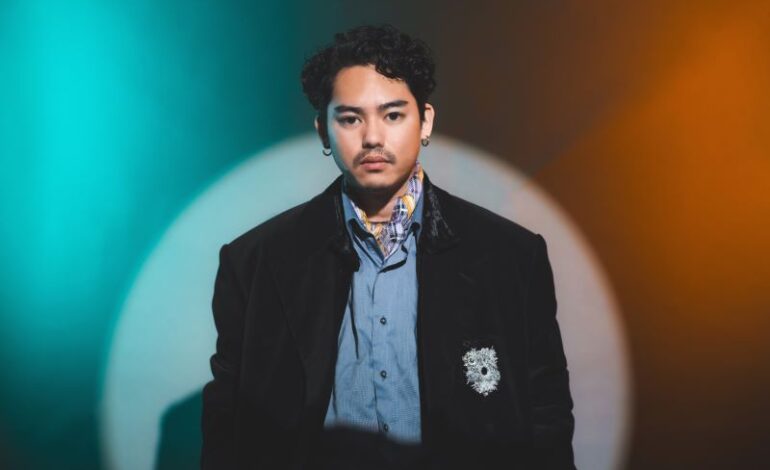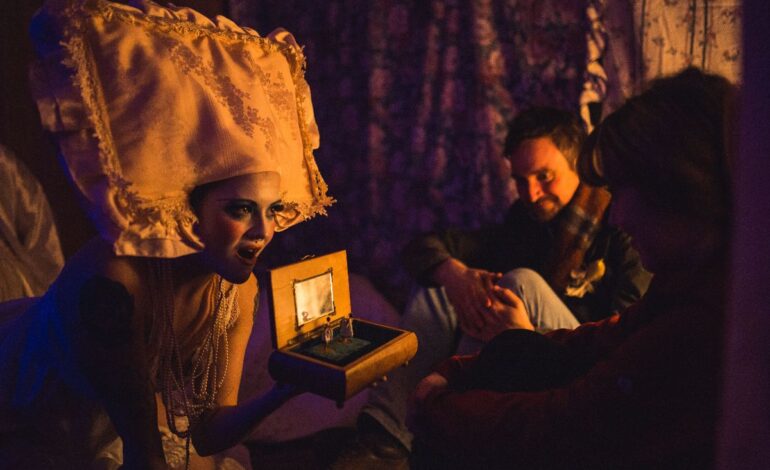Gogo is a Swedish artist, songwriter, and producer born in 1998. Classically trained and deeply inspired by both music and film, Gogo has forged a sound that blends elements of alternative pop, soul, R&B, and rock. His music is defined by emotional depth, bold experimentation, and a cinematic sense of melody. As an artist, Gogo’s commitment to creative freedom and uncompromising authenticity sets him apart from the crowd, offering a sound the pop scene has been aching for.
You’ve said “zero compromise” is at the core of your work — how do you stay grounded in that mindset in such a trend-driven industry?
I only keep people who share that mindset in my circle. Then I compromised my life so I wouldn’t have to compromise my music. It’s like a little mantra, but my friends and I are very like-minded in that. It’s a good way to not get your head hijacked by everything going on today. Good music with a true intention will always be magic.
What does creative freedom actually look like for you on a day-to-day basis?
When I write, I live in the studio, or I move the studio to where I live. And then I just experiment with making sounds or samples and have fun. Then somewhere in there, I start reminiscing over some girl, or any emotion really, that turns into a song — that turns into an out-of-place outro — that “really could work as an intro for that other song”—and on and on. Eventually, after a few months, you have an album. A story that magically fits together. And you don’t really know how you got there.
You’ve lived through some intense situations — from brothels in New York to Moroccan police encounters. How have these moments shaped you as an artist and human?
It has made me more fearless and convinced that you can do anything if you have the idea and belief that you can make it. You can just start and figure it out as you go. Shooting the video for rewind, we landed in Morocco with a vision and a hotel and our cameras, then we just went out. Talking to people about our vision, played them the song. Some wanted to help, some wanted to trick us. It was rowdy! But everything turned out fine, and we got the shots we needed. I’m so happy with the video.
How has your relationship with yourself evolved through the making of Rewind?
Before, I was really chasing a sound, an artist that didn’t exist. With, Rewind, I really came home. From now on, I venture out, disassemble, rearrange, and repaint. But it’s the same parts, from the same place. It has made me more grounded in who I am and what I’m here to do.
In what ways do you think vulnerability can be a superpower in music today?
I don’t know. Everybody is vulnerable, everybody feels. Music makes us feel.
Do you ever feel pressure to “play the game” of streaming numbers, algorithms, or social media presence? How do you handle that?
Not really, I don’t think there is “a game” that everybody has to play. I do what I d,o and it stands out. Then ofc you’ve gotta be available for people who want to follow you and bring them along the journey. You’ve got to do marketing and all that in order to grow. But that world is full of possibilities and ways to work. I focus on doing great music and surround myself with people who can help me grow as a person, as an artist, and in numbers.
What does success look like for you — now, and in the long run?
I feel successful already. My dream was to make music that sounds like me. And I did it. Now I want to take over the world doing it my way. Be part of a popular music scene that’s innovative and alive.
Has becoming a filmmaker changed the way you write music, or vice versa?
I’m not a big movie guy, but every time I write, I see a scene in my head. It’s like each song is a different piece of a film. And now, I’m putting those pieces together. So it hasn’t changed much.


